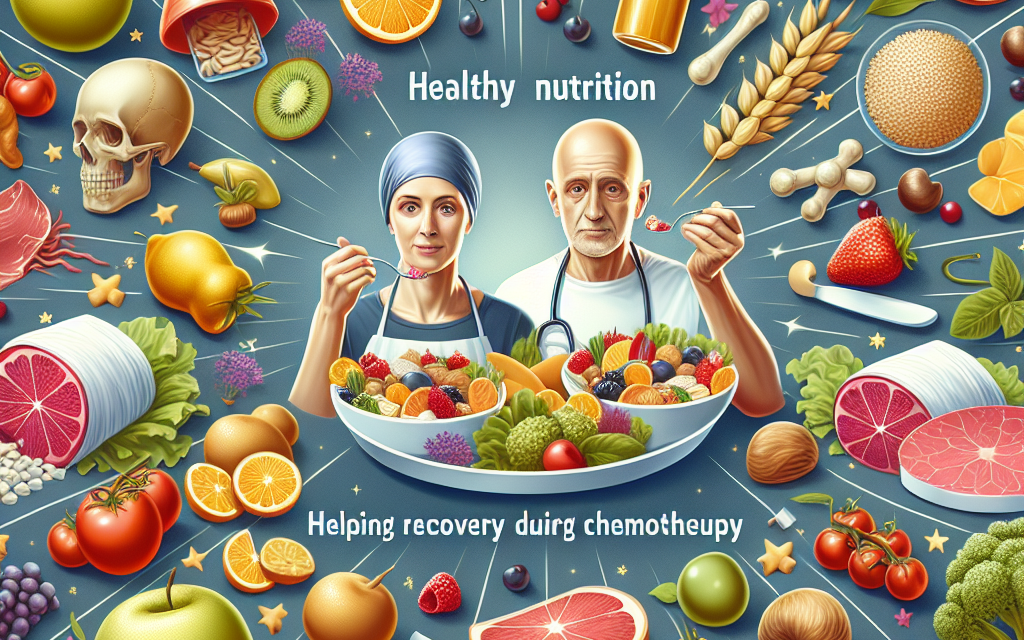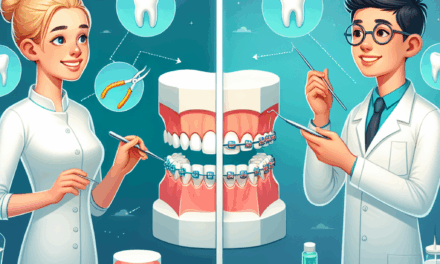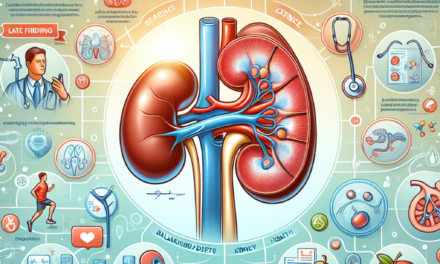Nutrition Strategies for Chemotherapy: Enhancing Recovery with a Healthy Diet
Chemotherapy is a common treatment for cancer, but it often comes with a range of side effects that can impact a patient’s overall health and recovery. One of the most effective ways to mitigate these side effects and enhance recovery is through proper nutrition. This article explores various nutrition strategies that can support individuals undergoing chemotherapy, focusing on five key subtopics: understanding the nutritional needs during chemotherapy, managing side effects through diet, the role of hydration, the importance of meal planning, and the benefits of nutritional supplements.
Understanding Nutritional Needs During Chemotherapy
During chemotherapy, the body undergoes significant stress as it fights cancer cells. This stress can lead to increased nutritional needs, making it essential for patients to understand what their bodies require to maintain strength and support recovery.
Firstly, chemotherapy can lead to a loss of appetite, making it crucial to focus on nutrient-dense foods. Patients should aim to consume a variety of foods that provide essential vitamins and minerals. Key nutrients include:
- Proteins: Essential for repairing tissues and maintaining muscle mass. Sources include lean meats, fish, eggs, dairy products, legumes, and nuts.
- Carbohydrates: The body’s primary energy source. Whole grains, fruits, and vegetables are excellent choices.
- Fats: Healthy fats from sources like avocados, olive oil, and fatty fish can help with inflammation and provide energy.
- Vitamins and Minerals: Micronutrients such as vitamin C, vitamin D, calcium, and iron are vital for immune function and overall health.
Research indicates that patients undergoing chemotherapy may require up to 20% more calories than usual, depending on their treatment regimen and side effects. A study published in the Journal of Clinical Oncology found that malnutrition is prevalent among cancer patients, with up to 80% experiencing some form of weight loss during treatment. This underscores the importance of tailored nutritional strategies.
Additionally, it is essential to consider the timing of meals. Eating smaller, more frequent meals can help manage nausea and maintain energy levels. Patients should also be encouraged to eat nutrient-rich snacks throughout the day, such as yogurt, smoothies, or protein bars, to meet their caloric and nutritional needs without overwhelming their digestive systems.
Managing Side Effects Through Diet
Chemotherapy can cause a variety of side effects, including nausea, vomiting, diarrhea, constipation, and changes in taste and smell. Each of these can significantly impact a patient’s ability to eat and maintain proper nutrition. Understanding how to manage these side effects through diet is crucial for recovery.
For instance, nausea is one of the most common side effects of chemotherapy. To combat this, patients can try the following dietary strategies:
- Ginger: Consuming ginger tea or ginger candies can help alleviate nausea.
- Small Meals: Eating small, frequent meals rather than large ones can prevent overwhelming the stomach.
- Avoiding Strong Odors: Foods with strong smells can trigger nausea; opting for bland foods can be more tolerable.
Diarrhea is another side effect that can lead to dehydration and nutrient loss. To manage this, patients should focus on:
- BRAT Diet: Bananas, rice, applesauce, and toast are gentle on the stomach and can help firm up stools.
- Hydration: Drinking clear fluids and electrolyte solutions is essential to prevent dehydration.
- Avoiding Dairy: Some patients may find that dairy products exacerbate diarrhea.
Constipation can also be a concern, particularly for those taking certain medications. To alleviate this, patients should increase their intake of:
- Fiber: Foods high in fiber, such as fruits, vegetables, whole grains, and legumes, can help promote regular bowel movements.
- Fluids: Adequate hydration is crucial for preventing constipation.
Changes in taste and smell can make food unappealing. Patients may benefit from experimenting with different flavors and textures, such as:
- Spices and Herbs: Adding herbs and spices can enhance flavor without adding calories.
- Cold Foods: Cold meals may be more palatable than hot ones, as they often have less pronounced odors.
The Role of Hydration
Hydration is a critical component of nutrition during chemotherapy. Many patients experience dehydration due to side effects such as vomiting, diarrhea, and reduced fluid intake. Maintaining proper hydration is essential for overall health and can help alleviate some chemotherapy-related side effects.
Water is the best source of hydration, but patients can also benefit from:
- Electrolyte Drinks: Sports drinks or oral rehydration solutions can help replenish lost electrolytes.
- Broths and Soups: These can provide hydration while also delivering nutrients.
- Fruits and Vegetables: Many fruits and vegetables have high water content and can contribute to hydration. Examples include cucumbers, watermelon, oranges, and strawberries.
Research shows that adequate hydration can help reduce the severity of side effects such as fatigue and constipation. A study published in the Supportive Care in Cancer journal found that patients who maintained proper hydration reported improved quality of life and reduced side effects during chemotherapy.
Patients should aim to drink at least 8-10 cups of fluids daily, but individual needs may vary based on activity level, climate, and specific treatment regimens. It is essential for patients to listen to their bodies and adjust their fluid intake accordingly.
The Importance of Meal Planning
Meal planning is a vital strategy for patients undergoing chemotherapy. A well-structured meal plan can help ensure that patients meet their nutritional needs while managing side effects effectively. Here are some key considerations for meal planning during chemotherapy:
Firstly, patients should focus on creating a balanced meal plan that includes a variety of food groups. This can help ensure they receive all the necessary nutrients. A sample meal plan might include:
- Breakfast: Oatmeal topped with berries and a dollop of yogurt.
- Lunch: Grilled chicken salad with mixed greens, nuts, and a vinaigrette dressing.
- Dinner: Baked salmon with quinoa and steamed broccoli.
- Snacks: Hummus with carrot sticks or a smoothie made with spinach, banana, and almond milk.
Secondly, patients should consider their energy levels when planning meals. On days when they feel more fatigued, it may be beneficial to prepare simple, easy-to-eat meals or have pre-prepared meals on hand. Batch cooking and freezing meals can save time and ensure that nutritious options are readily available.
Additionally, involving family members in meal planning can provide emotional support and make the process more enjoyable. Cooking together can also create a sense of normalcy during a challenging time.
Finally, patients should be encouraged to keep a food diary to track their intake and identify any foods that may trigger side effects. This can help them make informed choices about what to eat and avoid during treatment.
The Benefits of Nutritional Supplements
Nutritional supplements can play a significant role in supporting patients undergoing chemotherapy. While whole foods should be the primary source of nutrition, supplements can help fill gaps when dietary intake is insufficient. Here are some key points to consider regarding nutritional supplements:
Firstly, protein supplements can be beneficial for patients struggling to meet their protein needs through food alone. Protein powders, shakes, or bars can provide a convenient source of protein, which is essential for tissue repair and immune function.
Secondly, multivitamins can help ensure that patients receive adequate vitamins and minerals, particularly if they have a reduced appetite or are experiencing side effects that limit their food choices. However, it is essential for patients to consult with their healthcare provider before starting any new supplements, as some may interact with chemotherapy drugs.
Omega-3 fatty acids, found in fish oil supplements, have been shown to have anti-inflammatory properties and may help improve appetite and reduce cachexia (muscle wasting) in cancer patients. A study published in the Journal of Nutrition found that omega-3 supplementation improved quality of life and reduced inflammation in patients undergoing chemotherapy.
Probiotics may also be beneficial for patients experiencing gastrointestinal side effects. These supplements can help restore gut health and improve digestion. Research indicates that probiotics can reduce the incidence of antibiotic-associated diarrhea and improve overall gut function.
Lastly, it is crucial for patients to work with a registered dietitian or nutritionist who specializes in oncology to develop a personalized nutrition plan that incorporates appropriate supplements based on their individual needs and treatment plan.
Conclusion
Nutrition plays a vital role in supporting recovery during chemotherapy. By understanding their nutritional needs, managing side effects through diet, maintaining proper hydration, planning meals effectively, and considering nutritional supplements, patients can enhance their overall well-being and improve their quality of life during treatment.
As research continues to evolve, it is clear that a healthy diet can significantly impact recovery outcomes for cancer patients. By prioritizing nutrition, individuals undergoing chemotherapy can empower themselves to take an active role in their healing journey. It is essential for patients to consult with healthcare professionals to create a tailored nutrition plan that meets their unique needs and supports their recovery.
In summary, the integration of nutrition strategies into the chemotherapy process can lead to better management of side effects, improved energy levels, and enhanced overall health. By focusing on a balanced diet, hydration, meal planning, and appropriate supplementation, patients can navigate the challenges of chemotherapy with greater resilience and hope.





